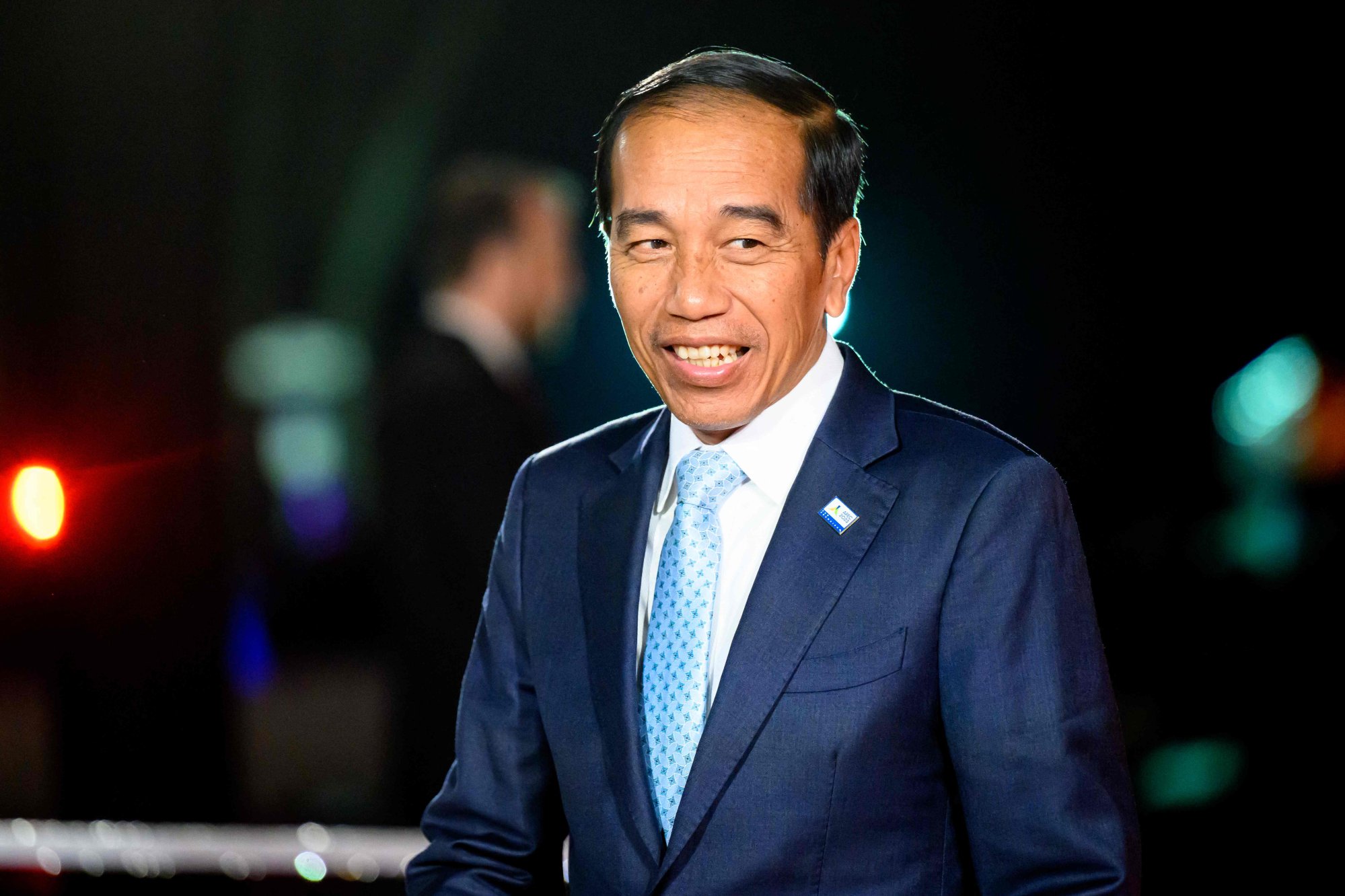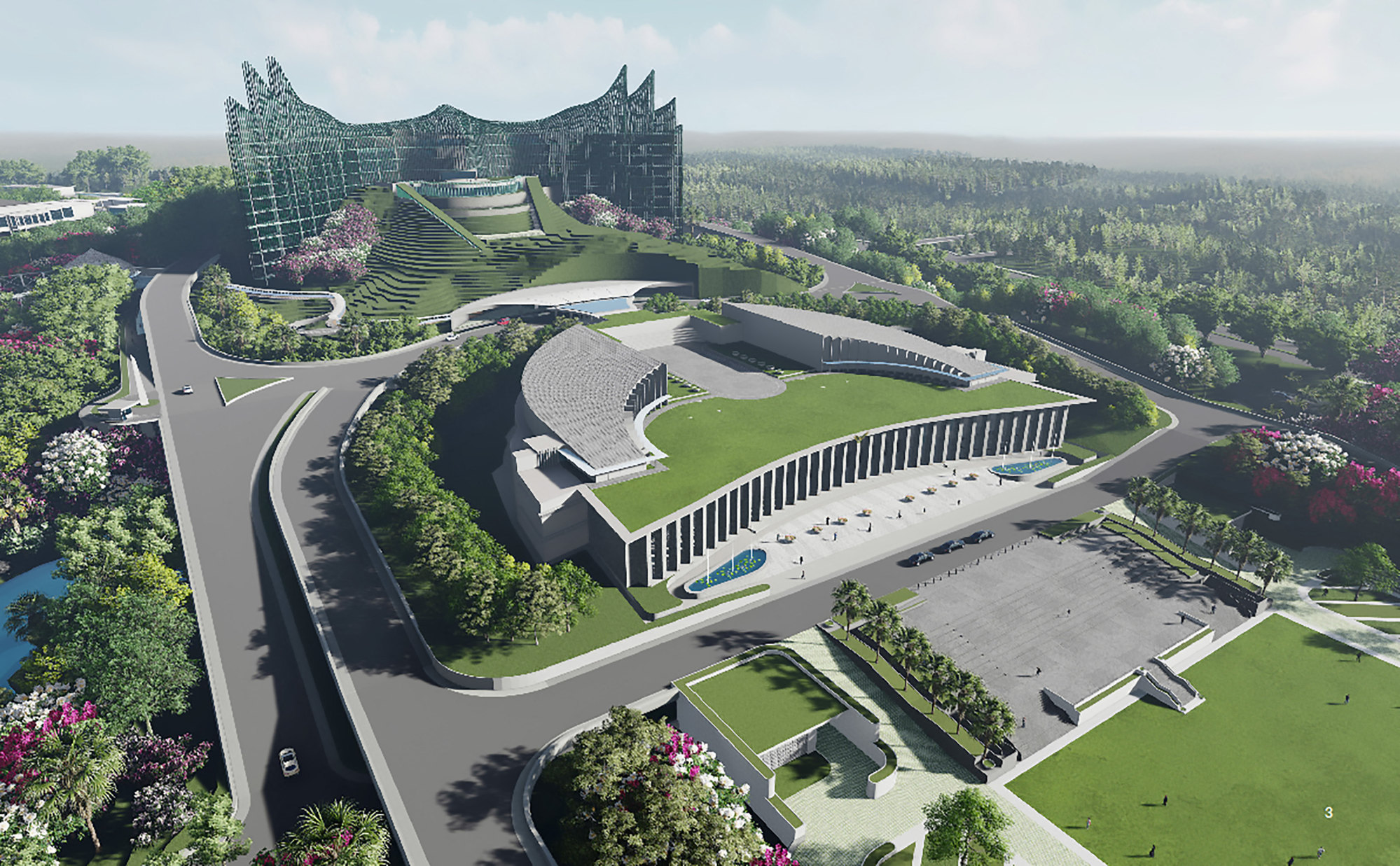Is Indonesia trying to ‘cover up’ poor foreign investor interest in Jokowi’s Nusantara capital project?
The Nusantara Capital Authority said that 305 Letter of Intents (LOIs), or documents outlining the understanding between two parties, had been signed so far between the authority and investors, most of whom were Indonesian companies, with 172 LOIs.
Of the total, only 21 companies, all from Indonesia, had proceeded with their investments, worth a combined 35 trillion rupiah (US$2.2 billion), the authority said on Monday.

Widodo said the government was prioritising domestic investors as he believed that their investments could boost confidence among foreign investors.
“I am sure that after domestic investors move in … foreign investors will soon come in,” Widodo said during the sideline of Apec Summit in California on November 16.
Indonesia estimates that the development of Nusantara will cost around 466 trillion rupiah (US$29 billion), with the state budget funding one-fifth of the project, and the rest covered by domestic and foreign investments. Foreign investors can take part in the project either through stand-alone investments, partnering with Indonesian companies, or teaming up with the government under a public-private partnership (PPP) scheme.
Bhima Yudhistira, director at Jakarta-based think tank Centre of Economic and Law Studies (Celios), said foreign investors remained doubtful about their potential return as there was no clarity around Nusantara’s population projections.
“Investors will invest in a project if the calculations are clear. They will definitely do due diligence first and if there are still many doubts about their plans, they will postpone their investments in the new capital,” Bhima said.
Why Indonesia’s Gen Z and millennials could determine nation’s next leader
Why Indonesia’s Gen Z and millennials could determine nation’s next leader
Indonesian partnerships
Agung Wicaksono, the deputy for funding and investment at the Nusantara Capital Authority, on Monday sought to clarify Widodo’s statement by saying the president meant there were no “stand-alone foreign investment in Nusantara” so far.
“Foreign investors have invested [in Nusantara] as international partners of Indonesian companies. There are hotels and hospitals currently being built by domestic investors and their foreign partners,” he said.
Agung offered two reasons why foreign investors were more likely to partner a domestic firm than make stand-alone investments.
“In this pioneering stage, we prioritise the investments from foreign investors that have partnered with domestic investors,” he said, adding that domestic firms were simply faster at evaluating risk and return, and passing the authority’s review process.
“They are more accustomed to the investment climate [in Indonesia] than foreign investors,” Agung said.
There are currently nine companies, three of them foreign, that have teamed up with the government under the PPP scheme to build housing complexes in the new capital, including China’s Citic Construction, which plans to build 60 towers in a public housing estate for the Ministry of Defence.
“Citic Construction has completed a feasibility study with the Ministry of Public Works and Housing and is waiting for the next stage, which is the evaluation of the study before we launch an open tender,” Agung said, responding to a question by This Week in Asia.
“We can’t disclose the amount of Chinese investments, as there is no actual investment yet, but we have received 19 LOIs from China, in a range of sectors such as infrastructure and smart city.”
There are eight stages that investors need to follow to turn an LOI into an agreement with the Indonesian government, and the fastest deal can be reached within three months, Agung said.

He pointed to how the Nusantara Consortium – a grouping of 10 Indonesian companies – took three months to confirm 40 trillion rupiah (US$2.5 billion) in investments after it signed an LOI in June for projects encompassing hotels, office buildings and green areas. In the first stage, the consortium would invest 20 trillion rupiah, or half of its total investment, in Nusantara.
Agung said another set of significant deals was done earlier this month “by Indonesian companies that partnered up with foreign investors” for a range of projects worth 12.5 trillion rupiah. They include the construction of a 50-megawatt solar power plant by state-owned electricity provider PLN and Singapore’s Sembcorp; a football training centre, jointly built by the world’s football body Fifa and Indonesia’s soccer association PSSI; and a hospital built by Indonesia’s Mayapada Group and India’s Apollo Hospitals Enterprise Limited.
The Nusantara authority is planning another round of signings for hotels, supermarkets and green areas next month, which will bring the total investment to new capital to 45 trillion rupiah this year, said Agung. None of the money comes from the state coffers, he added.
Indonesia’s Jokowi touts legacy in swansong speech ‘justifying his presidency’
Indonesia’s Jokowi touts legacy in swansong speech ‘justifying his presidency’
Wait and see
Bhima of Celios said foreign investors were “confused” by the government’s infrastructure focus, as Jakarta was “still massively building infrastructure in Java”, signalling to investors that the island would remain the economic centre of Indonesia, despite the capital relocation to Borneo.
“The election and the political drama surrounding it has also raised concerns about the sustainability of the new capital project in the future. It’s natural that many investors will wait and see [how the new capital develops] before investing in it,” Bhima said.
Eko Listiyanto, an economist with Jakarta-based Institute for Development of Economics and Finance, said high interest rates were making global investors think twice today before investing in real sectors, such as infrastructure.
Both Bhima and Eko see the Nusantara authority’s statement of prioritising domestic investors as an excuse for foreign investors’ lukewarm appetite in Widodo’s legacy project.
Prabowo slams West’s ‘unfair’ treatment of Indonesia: ‘we don’t need Europe’
Prabowo slams West’s ‘unfair’ treatment of Indonesia: ‘we don’t need Europe’
“I think they are just trying to cover up the fact that their efforts in the past two years to attract foreign investors to the new capital have failed,” Eko said.
To entice foreign investors, Jakarta offers lucrative leases, which can reach up to 190 years, and other incentives such as tax holidays, tax reductions, and ease of licensing process. But Bhima argues that these incentives could backfire as investors might question Indonesia’s intention in giving such generous offers.
“The increasing number of tax incentives and leases of up to 190 years actually make investors doubt the rate of return on capital. In fact, investors will be doubtful, they are questioning whether anyone actually buys into this project,” he said.


